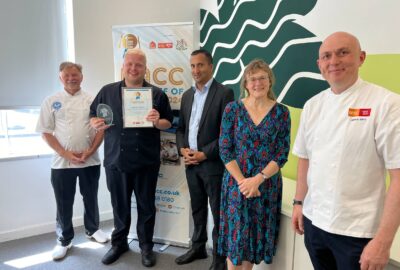The UK and Ireland have some of the best scenery, history and places to visit in the world, so there’s little wonder as to why so many of us opt for staycations as opposed to holidays abroad. The rise of staycations, fueled by changing travel patterns and a renewed appreciation for local destinations, presents a unique opportunity for hospitality businesses. Restaurants, cafés, bars, hotels, and B&Bs have an opportunity to maximise sales potential by curating menus to appeal to domestic travellers seeking a blend of comfort and adventure in their dining experiences.
Understanding the Staycation Market Staycationers, predominantly local tourists exploring regions within their own country, seek experiences that blend the familiar with the novel. In 2023, the share of UK residents taking a domestic summer holiday increased by 50% compared to the previous year. According to the survey published by Statista Research Department, 63% of respondents planned a staycation in 2023, whereas only 42% did the same in 2022. Staycationers tend to favour authentic experiences that reflect the local culture and cuisine, yet also appreciate comfort foods and familiar dishes. Understanding this balance is key when designing your menu.
Adapt Menus for Diverse Palates
While celebrating local cuisine, it’s essential to cater to varied tastes and dietary requirements. Offering vegetarian, vegan, and gluten-free options ensures inclusivity. Moreover, tweaking traditional recipes to cater to a broader audience can also be beneficial.
For example, offering a vegetarian version of a cooked breakfast, dairy free alternatives on your beverage menu or offering gluten-free Irish soda bread can attract a wider range of customers.
Interactive and Customisable Dining Experiences
Interactive dining experiences, such as build-your-own meal kits or cooking classes, can be particularly appealing to staycationers. For example, hotels might offer a package where guests can forage for ingredients with a local guide and then cook their finds with a chef. Similarly, bars can host cocktail-making sessions featuring local spirits. These experiences are profit-rich, simple to promote, host and not only provide a unique dining experience but also create memorable moments.
Seasonal and Themed Menus
While the weather may not always be on our side, we are lucky in that we have 4 distinct seasons within the UK and Ireland. Aligning menus accordingly or targeting local festivals can add an extra layer of attraction. A summer menu featuring lighter, seasonal handheld produce for picnics, autumnal menus with fun additions for Halloween or bonfire night and a winter menu full of hearty soups made with home grown veg help to highlight the transition from one season to the next. Tying in with local events, such as an open-air concert or a harvest festival in a rural area, adds an element of excitement and relevance to the menu.
Accommodating Change
The opportunities for operators targeting staycationers are varied. Increasingly we are seeing restaurants and pubs transform some of their rooms to provide accommodation for visitors. One such business is The Beacon in Tunbridge Wells who were inspired to add 7 rooms to their venue for guests to stay after the weddings and events they host. “Now is the perfect time to add to the dining experience of the Beacon by opening our former family home to our guests. We have always been asked about staying at our beautiful country house so now our guests can stay and relax in a beautiful country home environment,” say Pete and Viv Cornwell, Founders of I’ll Be Mother Group. “Our Head Chef Scott Goss, an alumnus of the late, great, Gary Rhodes, produces seasonal and local menus in guest room packages or if they choose to dine with us ad hoc. Most of our guests want to stay, dine and drink.”
Focus on Inclusivity
There are almost 14 million people in the UK and Ireland with a disability, some of whom are too overwhelmed to take a trip abroad, or unable to. In addition, many staycationers use their holiday to spend time with older family members who may not be able to go away on their own. As such, offering facilities that accommodate disabled customers and the elderly, ensuring they are promoted on websites and social media, will make their vacation less stressful and much more enjoyable for all. “Finding access information gives us the choices that will help us match our needs with the right destinations,” comments Vaila Morrison, inclusive design expert at Stannah. “From wheelchair accessible entrances and accessible toilets, to finding quieter spaces for those with neurodivergent conditions or dementia, this is sometimes easier said than done, as information about accessibility isn’t always available as a criteria filter and sometimes can be buried amongst the glossy pictures and holiday offers.”
Successfully attracting staycationers in the UK and Ireland lies in striking a balance between authenticity and familiarity, but ultimately it’s about creating a dining experience that not only satisfies the palate but also enriches the overall staycation experience. By combining the unique features of your holiday destination with the little touches that make a holiday special, you will create memories that last a lifetime for your guests.
Local Flavours and Authenticity
Incorporating local ingredients and traditional dishes is a great strategy to provide unique insight to the area and form the foundation of a dining experience. For instance, a café in Cornwall might feature their own unique Cornish pasty recipe, or a seafood restaurant in Galway could highlight locally sourced oysters. It’s not just about the food though – it’s about storytelling that goes with it. Instagram and TikTok are alive with posts from people who are passionate about uncovering the most wild, unusual and awe-inspiring foodie finds when visiting a new location. From cheese and charcuterie to pastries and cakes, when you have found your niche, see how far you can push the envelope to make it a must-visit destination.
Where possible, local menus should narrate the origin of dishes, the local suppliers, and traditional cooking methods. This approach not only satisfies culinary curiosity but also supports local economies and promotes sustainability. “I think operators need to be doing more to sell the local areas they are covering and looking at enhanced guest services,” comments Mark Oldfield, Owner at SW Coastal Concierge. “More and more guests would like the privacy of a high-quality self-catering holiday but with the convenience of hotel services. Our concept of providing local concierge services for self-catering has certainly gone down well here, encouraging repeat bookings, to make life easy for those while they are away.”



